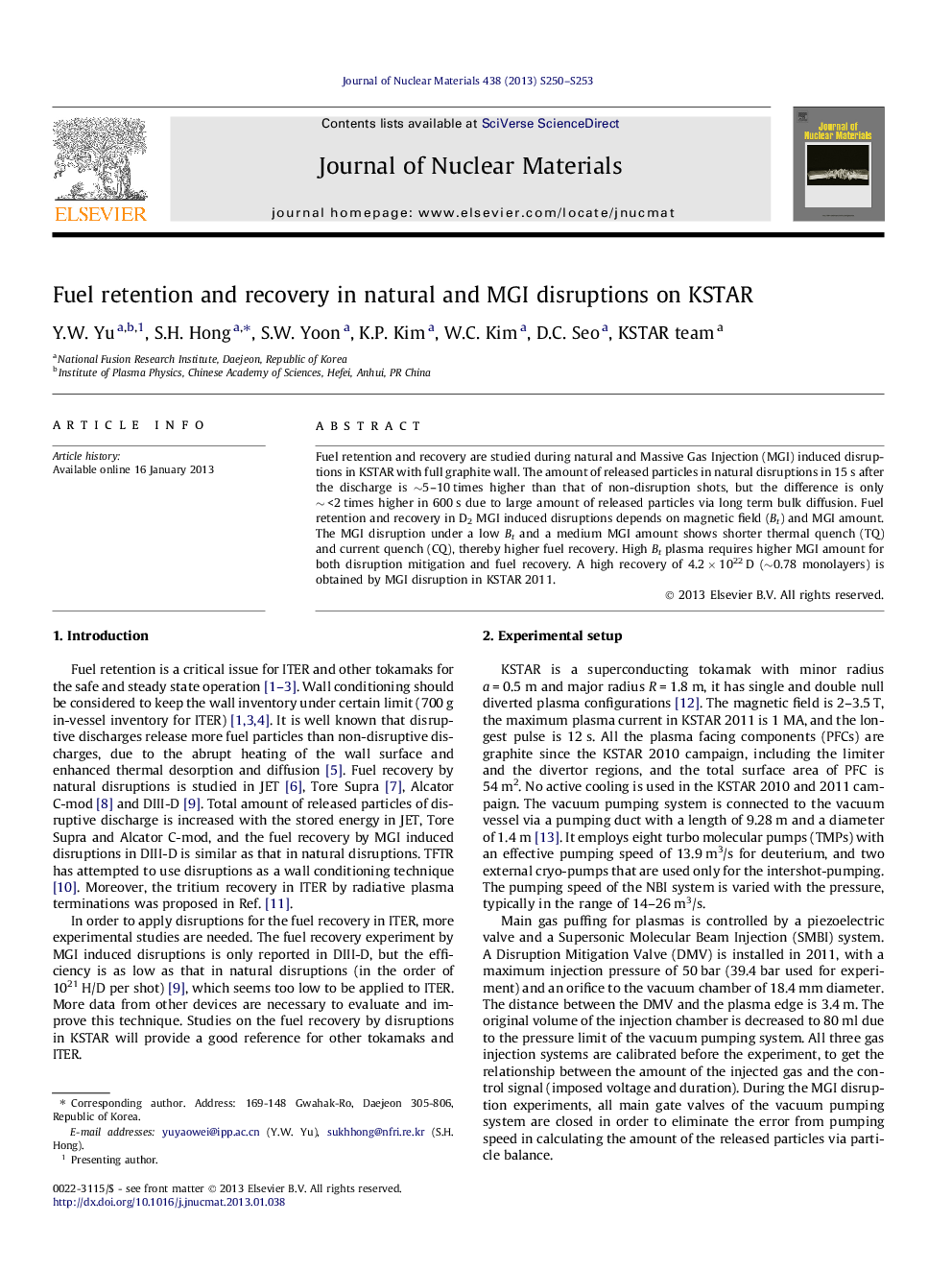| Article ID | Journal | Published Year | Pages | File Type |
|---|---|---|---|---|
| 10644986 | Journal of Nuclear Materials | 2013 | 4 Pages |
Abstract
Fuel retention and recovery are studied during natural and Massive Gas Injection (MGI) induced disruptions in KSTAR with full graphite wall. The amount of released particles in natural disruptions in 15 s after the discharge is â¼5-10 times higher than that of non-disruption shots, but the difference is only â¼Â <2 times higher in 600 s due to large amount of released particles via long term bulk diffusion. Fuel retention and recovery in D2 MGI induced disruptions depends on magnetic field (Bt) and MGI amount. The MGI disruption under a low Bt and a medium MGI amount shows shorter thermal quench (TQ) and current quench (CQ), thereby higher fuel recovery. High Bt plasma requires higher MGI amount for both disruption mitigation and fuel recovery. A high recovery of 4.2 Ã 1022 D (â¼0.78 monolayers) is obtained by MGI disruption in KSTAR 2011.
Related Topics
Physical Sciences and Engineering
Energy
Nuclear Energy and Engineering
Authors
Y.W. Yu, S.H. Hong, S.W. Yoon, K.P. Kim, W.C. Kim, D.C. Seo, KSTAR team KSTAR team,
